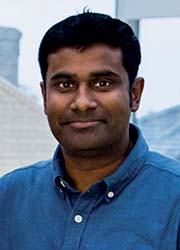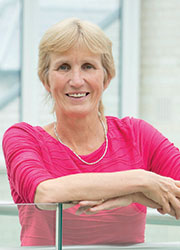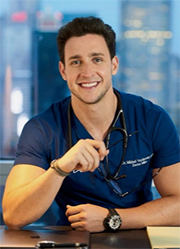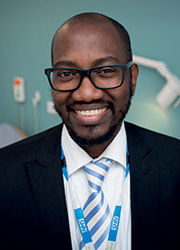
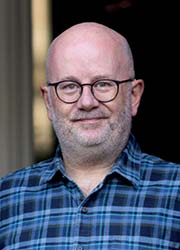
GP Lives: An Empathetic Ear
This article is from the GP Frontline archive and was originally published in May 2022
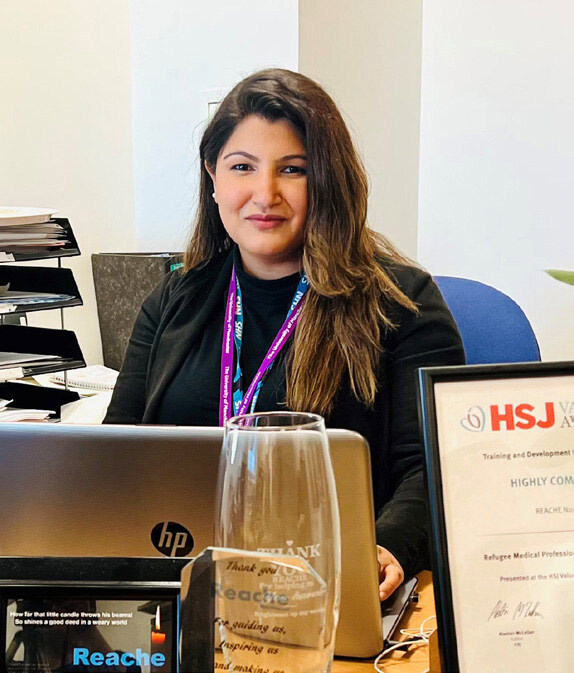
According to the UN Refugee Council, 84m people worldwide have been forcibly displaced due to war or fleeing persecution; 26.6m of them become refugees, and 4.4m become asylum seekers.
For the last 18 months Dr Aisha Awan has led the Refugee and Asylum Seekers Centre for Healthcare Professionals Education (REACHE). Established in 2003 and funded by Health Education England, the organisation has helped over 300 doctors – and more than 250 other healthcare professionals – to gain substantive posts in the NHS through supporting them to pass their UK licensing exams and English language proficiency tests.
Born in Manchester, Aisha’s family moved to Saudi Arabia for her father’s job when she was a child. Studying at international schools and living alongside families displaced by conflicts had an impact. When the first Gulf War broke out, Aisha remembers leaving her home, school and father behind. She recalls watching the news a week later and learning a scud missile had landed a few hundred metres from their compound and the horror of realising her father might have been home. “The desire to stand up for displaced people and others who don't have a voice was partly seeded in my childhood experiences,” she says.
This drive has shaped Aisha’s GP career. She was the clinical lead at her GP practice, supporting patients from homeless and refugee communities, as well as caring for those who might have been ‘off-listed’ from other practices. She was also on the governing body of Salford CCG, working to improve the health outcomes of people living in one of the most deprived local authorities in England.
In 2020, she became the Director of REACHE. “The work REACHE does to help medical colleagues regain their professional identity is incredible. But we recognise we are also part of our members’ trauma. They are already highly-trained professionals, some leaders in their field but they often have to restart their UK medical practice at a more junior level,” Aisha explains.
The work REACHE does to help medical colleagues regain their professional identity is incredible. But we recognise we are also part of our members’ trauma.
Originally, applicants would contact REACHE after hearing about the service locally – but Aisha describes how people are increasingly contacting them directly from the countries they are trying to flee. “We’ve had desperate messages from Afghanistan and Ukraine asking for help to escape. It’s heart-breaking because as a country we should be offering refuge in a timely manner, but frustratingly, the mechanisms are just not in place,” Aisha says.
Once arriving in the UK, REACHE supports members to find housing, offers pastoral care, counselling services, clinical English tuition and medical training. “We teach members about all aspects of working in the NHS, including the culture and processes,” Aisha says.
REACHE arranges three-month hospital placements for members at Salford Royal Hospital where the centre is hosted. The centre is also supported by academics from the University of Manchester.
Aisha describes the ‘difficult’ switch to online learning during the pandemic: “Some members and their families were living in one-bedroom flats, sharing a mobile phone between them and their children who had to do schoolwork remotely.” REACHE intervened, and with the help of the charity Computer Aid, sourced and delivered 100 refurbished laptops to members, allowing the continuation of their training.
The work of REACHE is not only socially responsible, but Aisha advocates its benefits to the NHS: “It’s a hugely cost effective project and an immediate solution to the extreme workforce shortages, we’re feeling across the health service,” she says.
REACHE has been contacted by those looking to deliver healthcare refugee training programmes both nationally and internationally. Aisha is only too happy to support this by sharing resources and experience with her counterparts. “Over 18 years, we've learnt the art of how to teach and re-establish healthcare professionals’ careers. It is only right that we share this, so we can support healthcare refugees across the globe,” she says.
She attests that her work at REACHE has positively impacted her ability to deliver clinical care as a GP. “I used to feel very strained sticking to the standard 10-minute appointment time,” she says, “but now I've stopped putting myself under so much pressure. I understand more the value of not rushing important conversations and the power of active listening. It makes the patient feel more understood and ensures that as GPs, we’re delivering the right care.
Read more
Thank you for your feedback. Your response will help improve this page.
